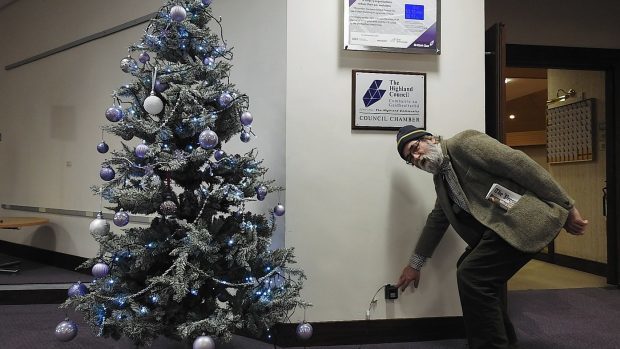The ghosts of Christmas past and present descended on cash-strapped Highland Council offices yesterday as staff were urged to dim the lights to help save money.
But it emerged that what appeared a Scrooge-like order was a logical plea to help save council taxpayers a pretty penny in the year ahead.
The 10,000 staff received short-notice e-mails asking them to power down electric heating and switch off non-essential equipment such as mobile phones chargers between 4.30pm and 5.30pm.
The council expected its meters to be monitored during the hour as part of a little known national initiative that offers non-domestic electricity customers a rare chance to cut the following year’s bill.
Under the scheme, a large portion of the council’s energy costs in 2017-18 will be based on the half-hour meter readings for that set period – and two others over the next few months.
Tongue-in-cheek, city councillor Donnie Kerr asked: “Would the last person to leave Glenurquhart Road please switch off the lights?”
He also shone a light on the supposedly costly festive illuminations and floodlights at various other council buildings.
But the authority’s climate change officer Keith Masson said a complex incentive offered by the electricity industry was worth seizing after a period of successively higher power bills.
The council’s annual electricity bills rose from £6million in 2013-14 to £6.3million the following year and almost £6.5million in 2015-16.
Mr Masson said: “Within every electricity bill there’s a portion you spend on your core energy and a portion that goes on the maintenance of the network.
“We had a notification through this morning from our supplier EDF. What we’re trying to do is maximise any potential reduction in cost for the coming financial year through managing our own consumption.
“If we can reduce the consumption throughout the three periods we pay less going forward. That’s important because at the moment about 55% of the cost goes on non core charges – and that’s going to rise to 70% by 2018-19.”
He added that the council was also looking to reduce its electricity use across the organisation.
